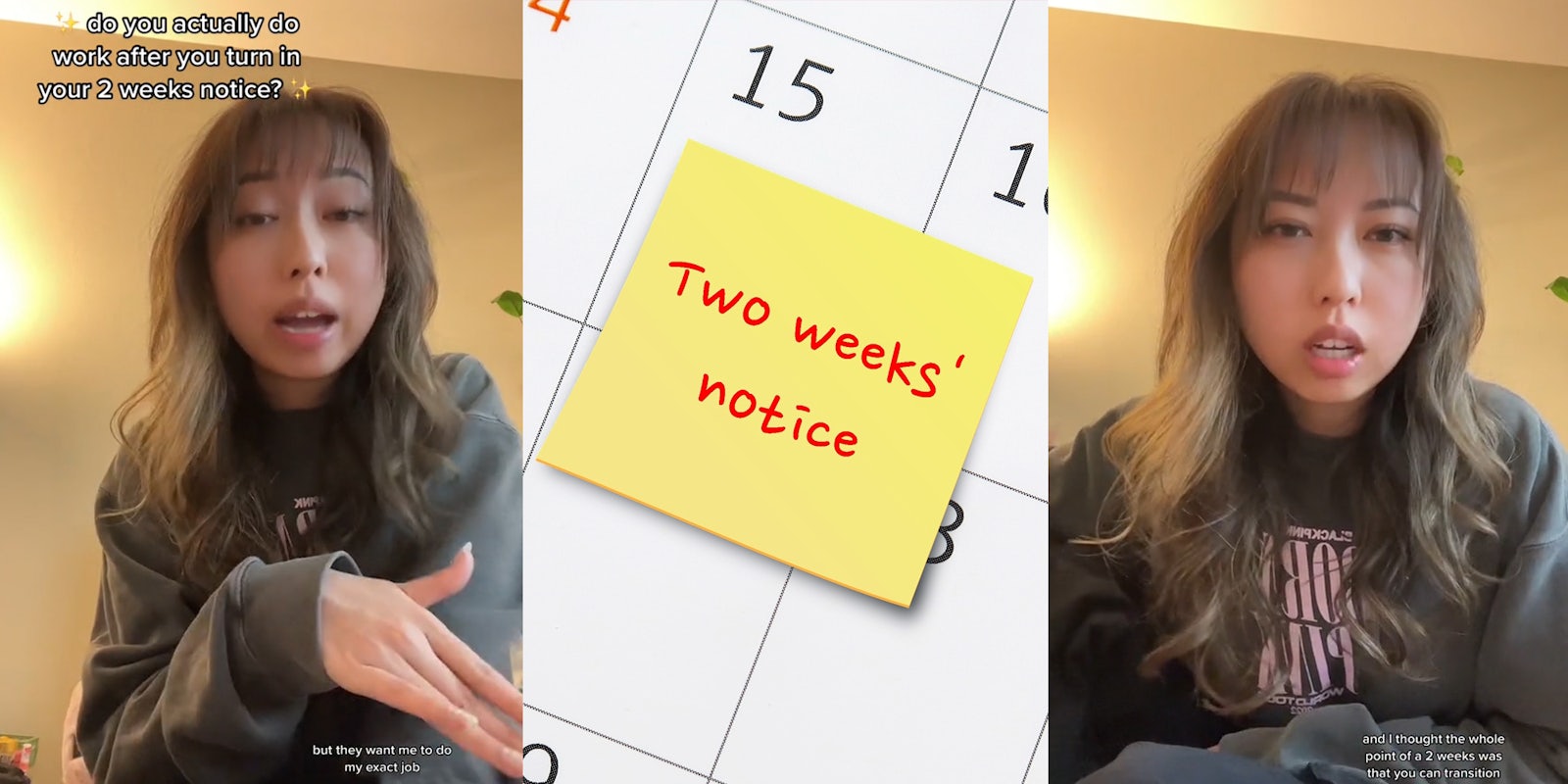While not required, it’s typically expected that employees in the United States give their employers two weeks’ notice before leaving a job.
This is a courtesy that allows the employer to wind down the employee’s role and find a replacement, as well as give the employee an adequate amount of time to prepare for a replacement to take over their role.
In general, this process might involve less work for the employee, as the employer knows they will soon be leaving. However, this isn’t always the case, as TikTok user Hanny (@hannynutcheerios) notes in a recent video.
In the video, she asks viewers whether they continue to perform their normal duties in their last two weeks of work, or if the job changes to account for the fact that they’re leaving.
“I thought when you submit your two weeks, it’s kind of like when you’re a senior in school, and it’s the last two weeks before summer break. And you do stuff, but not really,” she jokes. “But they want me to do my exact job responsibilities as if nothing’s changed.”
@hannynutcheerios the more work they assign me before i leave is just more work theyre going to have to reassign #work #corporatelife #quitting #twoweeks #twoweeksnotice ♬ original sound – hanny
In her video, Hanny notes that she’s been working under the impression that she might be promoted, meaning that she’s put in significantly more work than expected at her level. As she’s now leaving the role, she questions whether continuing on this path is typical.
“I thought the whole point of a two weeks’ notice was that you can transition your stuff to another person, not squeeze as much work out of me as possible,” she explains.
“Because if I was really so important to these tasks because I have so much knowledge on them, then why didn’t they just pay me more to keep me longer?” she continues.
She concludes that she still performed many of the tasks assigned to her, but if she didn’t, Hanny notes there would be little possibility for the company to retaliate against her.
“Honestly, at this point, what are they going to do? Fire me?” Hanny asks.
Online, there has been a growing movement against providing employers with two weeks’ notice. This is largely due to the idea that employers can fire employees suddenly and without reason, whereas the employees themselves are expected to give their employers time to prepare for their absence.
This perspective was echoed in the comments section under Hanny’s video.
“Never submit a two weeks. You either get fired or slaved,” one user wrote. “When you work at an amazing company and need a letter afterwards is the only time you do.”
“Only reason to give notice is if you want a letter of recommendation,” agreed another. “Otherwise no point.”
“Your first mistake was believing they actually cared about u,” a third shared. “Congrats on quitting at least.”
A few users claimed that Hanny was correct in her assessment of the purpose of providing a two weeks notice.
“They are not being realistic with expectations for someone who’s leaving the company,” offered a commenter.
“100% the point is to transition the role and responsibilities to your replacement,” detailed a second.
We’ve reached out to Hanny via email.



